
A past group photo of the “Stand and Deliver” cast together. Photo courtesy of Daniel Villarreal
“A negative times a negative equals a positive,” is one of the many lessons taught by Jaime Escalante and portrayed in the 1988 film “Stand and Deliver.” It still stands true today in the documentary “90 Minutes Later,” which follows the case’s aftermath of what led to the tragic death of actress Vanessa Marquez
The documentary, directed by independent filmmaker Cyndy Fujikawa, follows Marquez's life before her breakout role as Ana Delgado in the historic Latino-led film “Stand and Deliver" and as Nurse Wendy Goldman in the show “ER.” The film also describes the physical and mental health issues she was going through and how they affected her career and many of her relationships.
Over the years, the former castmates would always see each other at multiple screening events. Daniel Villarreal, who played Chuco in “Stand and Deliver,” relays the message from former castmate Patrick Baca about the cast being his crazy siblings and on a certain level they were like a little family who just lost a member.

Vanessa Marquez and Daniel Villarreal posing together. Photo courtesy of Daniel Villarreal
After a five-year journey, the documentary has been screened only a limited number of times. In one of the screenings on Nov. 4 2023, it was recognized by the Pembroke Taparelli Arts and Film Festival for Best Domestic Feature Film.
Fujikawa, whose previous work was “Old Man River” (1999), began working on the feature-length documentary five years ago after being asked to help with Marquez’s memorial by Villarreal. Fujikawa revealed that she was there to lend her support by being available to Villarreal and his friends.
Originally, Fujikawa had different feelings when deciding to work on the film. "Honestly, I did not want to tell this story. I remember sitting there thinking, ‘nope’,’’ according to her director’s statement. Impressed by the camaraderie shared between the cast and how they held together as a family after all these years is what helped her decide to take on the project.
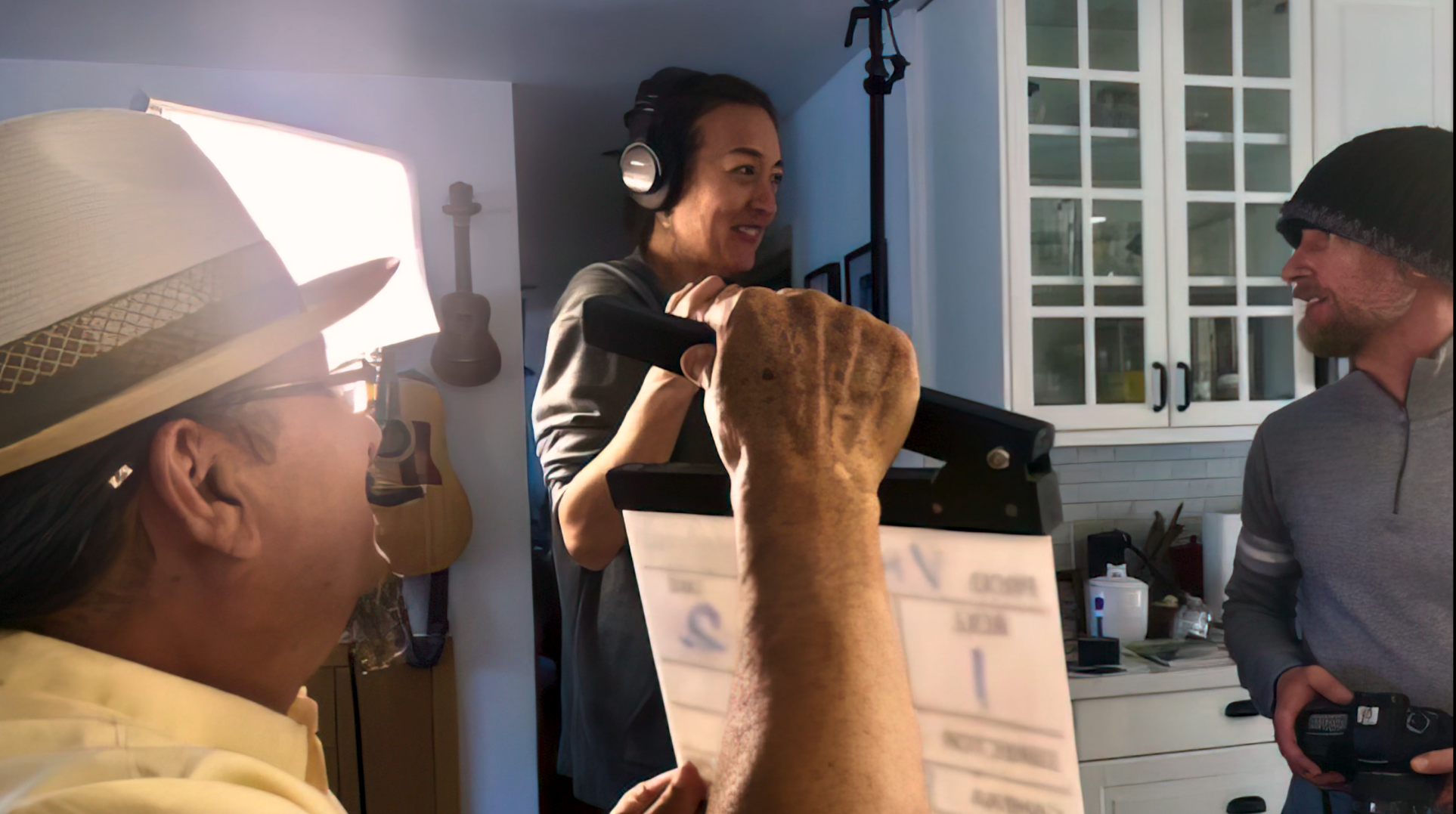
Behind-the-scenes photo while working on the documentary. Photo courtesy of Cyndy Fujikawa
Before being cast as “Chuco” in “Stand and Deliver,” Villarreal was in charge of many things behind the scenes, including the casting for the film to ensure authenticity. In a previous interview, Villarreal remembered the first time he met Marquez during casting. He knew the movie could not be made without her.
Villarreal told CALÓ NEWS that every time he watched the police footage, he always hoped the outcome would be different, but that would never be the case. During the final minutes of the film, footage shows Marquez being placed on the gurney, a section that Villarreal always avoids watching.
When Villarreal finally took a look for the first time, he noticed that Marquez was wearing diapers. “It’s a small thing that you don’t notice. It just [adds] another layer to her situation,” he said.
“Stand and Deliver” played an important role in Chicano history, as it was one of the first films done with an all-Latino crew. The film captures the hard-working values shared closely by many Latino households, as shown by Escalante pushing his students to believe that with “ganas” they are capable of achieving anything if they set their minds to it.
During Marquez’s memorial, one of the underlying issues that struck Fujikawa was her mental wellness decline. As the memorial progressed, the LA-based director recalled moving to the lobby, and one individual made this call to storytellers and filmmakers to speak about mental health and recognize its importance.
“At the time, nobody knew anything or understood. [They hadn’t] seen the pictures… but she recognized that this woman was struggling with mental health.” Fujikawa continued, “It's not a calling I would wish on anyone because it's a difficult thing to talk about this. Certainly, I didn't really know how, [but] it's been quite the journey.”
Within the Latino community, mental health is often stigmatized, which can lead to those suffering in silence. A variety of experiences that lead to mental health conditions can include immigration, acculturation, trauma and generational conflicts, according to a report from Mental Health America

“90 Minutes Later” movie poster. Photo courtesy of Cyndy Fujikawa
The report states mental health issues are on the rise for Latinos between the ages of 12 and 49. It was reported that serious mental illnesses significantly rose from 4% to 6.4% from ages 18–25 and from 2.2% to 3.9% in the 26–49 age range between 2008 and 2018.
The film contains police footage of what occurred at her South Pasadena apartment on Fremont Avenue during a ‘‘wellness check” on Aug. 30 2018. Upon entering the apartment, police found Marquez having a seizure and living in hoarding conditions. It was quickly decided she needed to be taken in for a mental evaluation, which led to her death in an officer-involved shooting.
After being there for more than an hour and a half, officers finally instructed Marquez to go with them. While still in bed, Marquez refused and pulled out a “BB-type” gun from under the bedsheets and officers fled down to the bottom stairwell of her apartment and assumed shooting positions.
After a few minutes of the police calling out, Marquez appeared with the prop-like gun and an armful of her stuffed animals. The police then opened fire, and Marquez was pronounced dead after arriving at a nearby hospital.
Lesly Garcia, who played “Chuco” during her high school production of “Stand and Deliver,” felt honored when she was invited to be on the documentary. When Garcia watched the police footage, she felt frustrated with how officers handled the situation that led to someone losing their life.
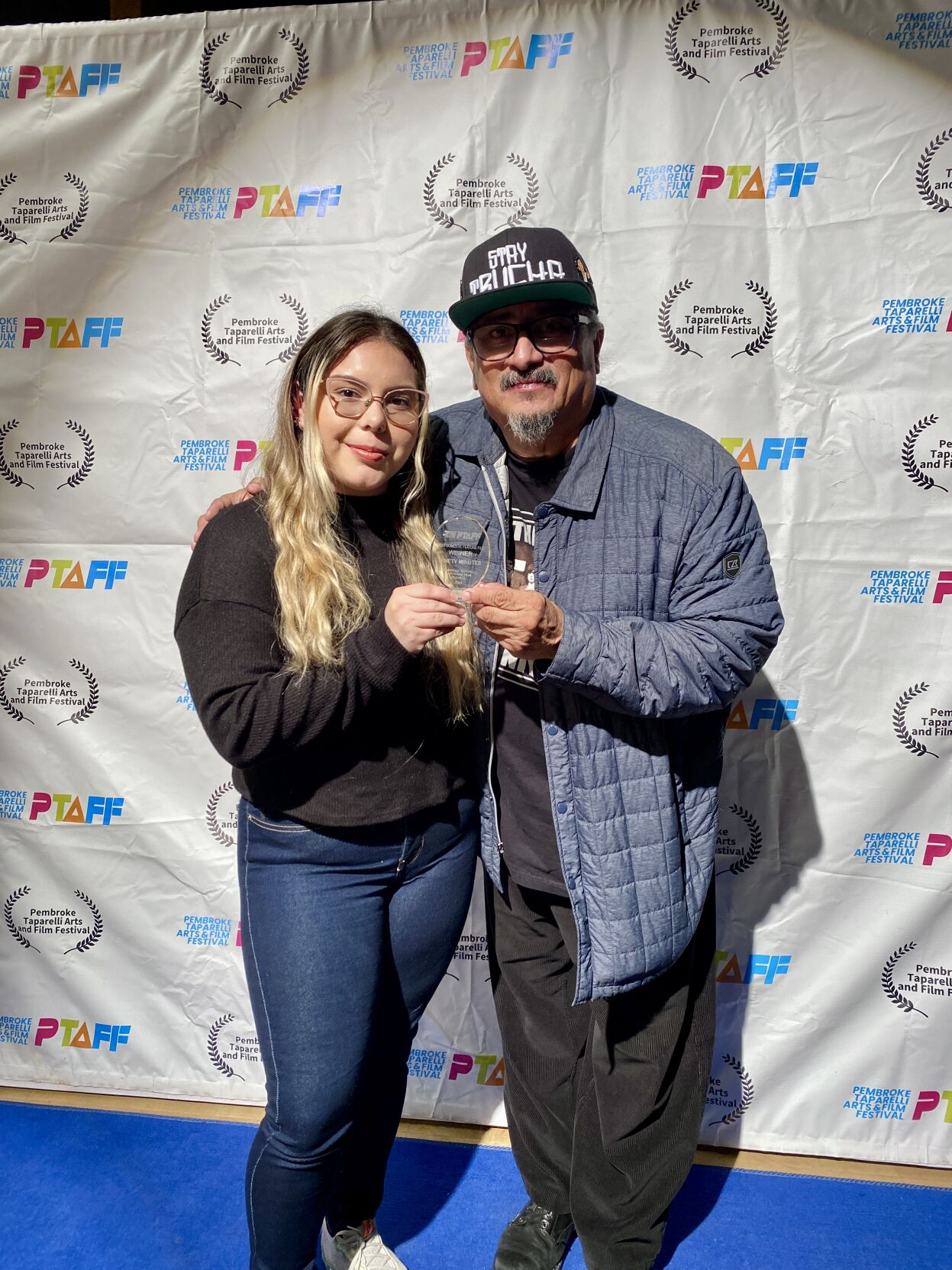
Lesly Garcia and Daniel Villarreal celebrating after winning Best Domestic Feature Film at the Pembroke Taparelli Arts and Film Festival. Photo by Erick Cabrera
“What I saw in the police footage was more about their abuse of power and how blindly they went into a situation that they couldn't deal with and should have stepped away,” Garcia said.
Garcia was inspired by Marquez's determination to become an actress, despite the many challenges she faced. Before landing the role of Ana Delgado, Marquez took the bus to get her audition, which eventually landed her the role.
One of the underlying questions the documentary delves into is what does Marquez want to be remembered for? In the end, Fujikawa’s documentary captures the heart of Escalante’s lesson and provides an opportunity for aspiring young Latina actresses to be featured in the documentary.

After screening the documentary, Lesly Garcia and Daniel Villarreal sat down for a Q&A, along with the audience. Photo by Erick Cabrera
“The young girls represent the Vanessa’s and these girls will hopefully not have to go through what she went through. They should not feel alone [and know that] they have a lot of support,” Villarreal said.
Villarreal credits Fujikawa for doing an incredible job and being able to cover as many bases as possible. Reiterating one of the many lessons Jaime Escalante taught about turning something negative into a positive.

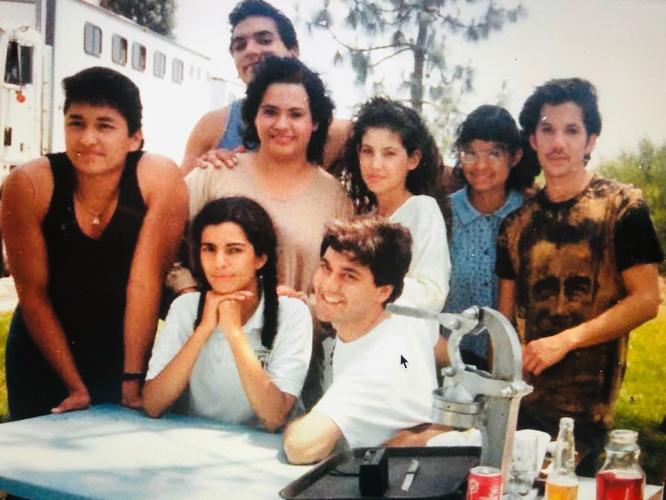

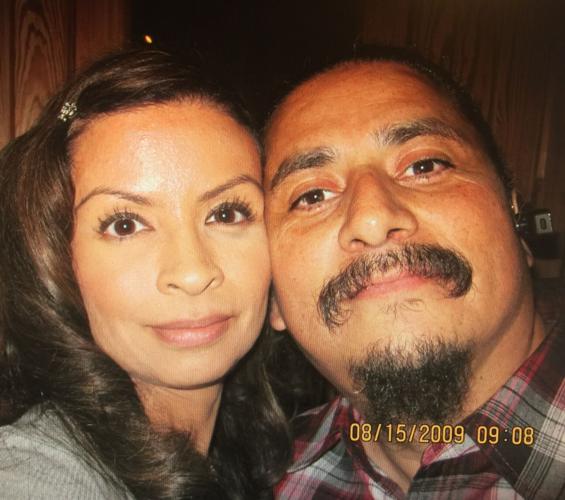


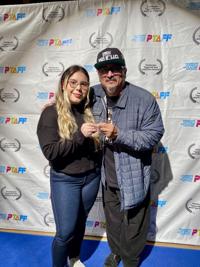
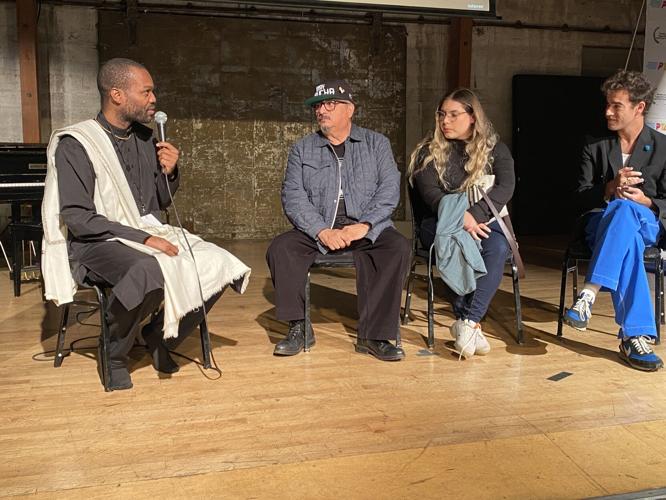

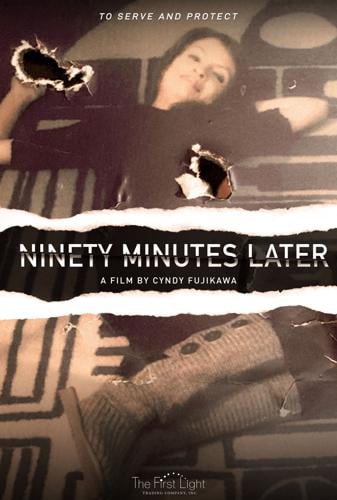
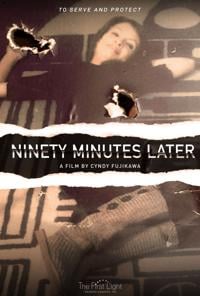








(0) comments
Welcome to the discussion.
Log In
Keep it Clean. Please avoid obscene, vulgar, lewd, racist or sexually-oriented language.
PLEASE TURN OFF YOUR CAPS LOCK.
Don't Threaten. Threats of harming another person will not be tolerated.
Be Truthful. Don't knowingly lie about anyone or anything.
Be Nice. No racism, sexism or any sort of -ism that is degrading to another person.
Be Proactive. Use the 'Report' link on each comment to let us know of abusive posts.
Share with Us. We'd love to hear eyewitness accounts, the history behind an article.